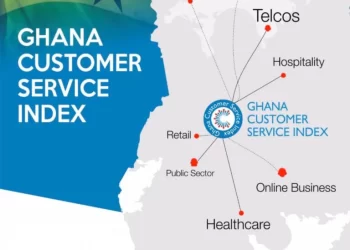Ghana has quietly yielded to sustained pressure from the United States (US) government by agreeing to facilitate deportations of West African nationals, despite earlier resistance that had triggered threats of punitive visa restrictions against Ghanaians.
At a Presidential Media Encounter held at the Jubilee House on Wednesday, September 10, 2025, President John Mahama confirmed that the first batch of 14 individuals deported from the US had arrived in Accra under a new bilateral arrangement.
According to the president, most of the deportees were Nigerians, with one Gambian national also among the group.
Although President Mahama carefully avoided describing the deal as a concession to Washington, the circumstances surrounding the deportations leave little doubt that Ghana bowed to US pressure.
For months, the US had been threatening Ghana with sanctions — ranging from the suspension of visas to reductions in visa validity as well as possible total ban— unless it agreed to cooperate more actively in receiving deportees.
US leverage through visa threats
Washington’s strategy was unmistakable. The US government, citing Section 241(b) of the Immigration and Nationality Act, insisted that nations must accept deportees who were ordered to leave America.
When countries, including Ghana, failed to facilitate removals, the State Department wielded its most effective tool: visa restrictions.
As of July 8, 2025, Ghanaian travelers began facing dramatically tougher conditions when applying for US visas.
Non-immigrant categories such as B1 (business), B2 (tourism), F (student), J (exchange visitor), and H (temporary worker) — which previously offered up to five years of multiple entries — were downgraded to single-entry visas valid for only three months.
The measure hit hard, particularly among Ghana’s business community, students, and frequent travelers who had long relied on more flexible visa arrangements.
It also signaled Washington’s growing impatience with Accra’s hesitance to accept deportees.
U.S. Immigration and Customs Enforcement’s (ICE) data shows that, as of January 2025, over 3,000 Ghanaians were on deportation list.
Many West Africa nationals on ICE deportations list also travelled to US on Ghanaian passports and therefore would be deported to Ghana.
However, Ghana has been hesitant to provide the necessary travel documents foe their deportation.
Deportations begin under bilateral deal
Explaining the new arrangement, President Mahama disclosed that Ghana had accepted to serve as a transit point for deported West Africans because of the region’s ECOWAS Protocol on Free Movement, which allows citizens of member states to travel visa-free within the sub-region for up to 90 days.
“We were approached by the US to accept third-party nationals who were being removed from the US, and then we agreed with them that West African nationals were acceptable, because all our fellow West Africans don’t need a visa to come to our country. So if they decided to travel from the US to Accra, they don’t need a visa anyway,” the president said.
Ghana facilitated the onward travel of the Nigerians by providing bus transportation to their home country.
In the case of the Gambian national, authorities worked with the Gambian Embassy in Accra to arrange an air ticket for his return.
Mahama maintained that Ghana’s participation was consistent with its ECOWAS obligations: “West Africa has the protocol of free movement, and so any West African is free to come to Ghana and be able to stay for 90 days. And so if they are bringing our colleagues back, we don’t have a problem accepting them.”
The bigger picture: Trump’s deportation agenda
The policy shift comes against the backdrop of former US President Donald Trump’s push to accelerate deportations of undocumented immigrants, including those whose countries of origin had been reluctant to take them back.
Section 241(b) of the US Immigration and Nationality Act gives the government wide latitude to remove aliens either to their home country, the country they last boarded a flight from, or to any country willing to accept them.
With many African governments dragging their feet, the US has increasingly leaned on visa bans and diplomatic pressure to secure cooperation.
Ghana, which had resisted for years, ultimately relented once the US tightened visa rules.
Bowing to pressure
For many observers, Ghana’s acceptance of deportees from the US — particularly those who are not even Ghanaian citizens — is a clear example of Accra bowing to American pressure.
The timing of the deportations, so soon after the announcement of stringent visa restrictions, underlines the leverage Washington holds over countries dependent on international travel, remittances, and educational exchanges with the US.
While the Mahama administration framed the move as a matter of regional solidarity under ECOWAS, critics argue that the real motivation was avoiding further isolation and sanctions from the US State Department.
The episode is a stark reminder of the imbalance in Ghana-US relations, where Washington’s visa policy has proven to be one of its most powerful diplomatic weapons.












